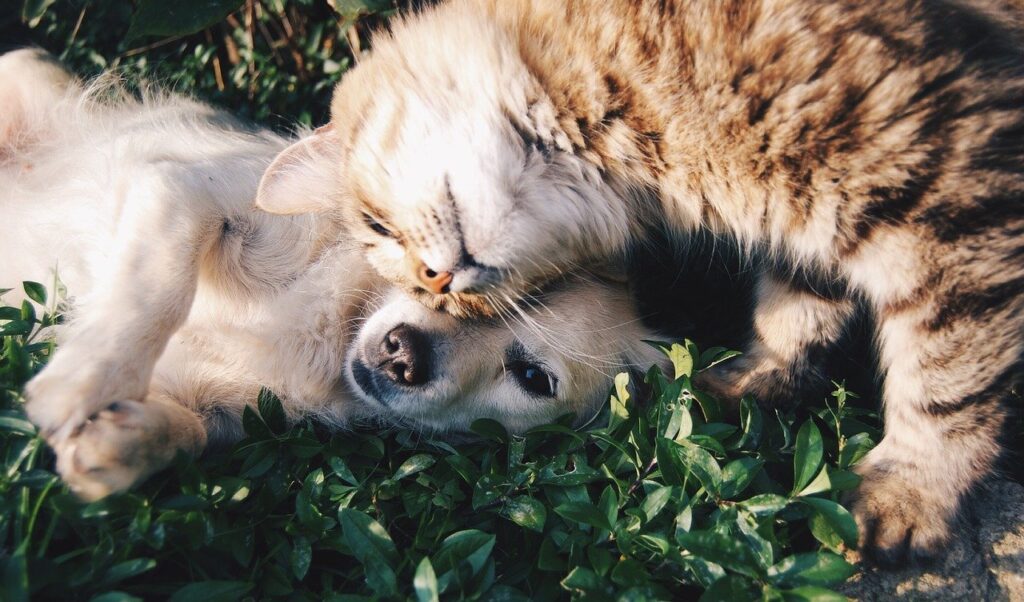How to Calm a Nervous Dog

How does one calm a nervous dog? In case you are looking for ways to relax a dog suffering from anxiety, then there are various steps that you can take to calm your nervous pet.
- Play some music
While you might have a favorite song that you listen to when stressed out, what you might have not realized is that music can also be soothing to dogs. Playing some music is known to relax dogs suffering from stress and anxiety.
According to various studies, playing music, particularly reggae and soft rock, can help to lower your dog’s heart rate, cortisol levels, and various other stress symptoms. It is also worth mentioning that there is some special type of music specifically meant to calm dogs. This type of music helps to ease separation anxiety when you aren’t at home and it minimizes stress during fireworks and storms.
So, the next time your dog is anxious, consider putting on some tunes or switching on the radio.
- Try aromatherapy
Aromatherapy for dogs does actually exist. It can be very beneficial when trying to calm a nervous dog. Essential oils can be soothing to your pet. However, you really need to be cautious. You shouldn’t just use any essential oils you find in your house. Only use vet-approved, specially formulated oils intended for pets. Such oils will include the correct balance of oils and they will be properly diluted.
Ensure that you apply the oil along your dog’s back and away from areas that your dog can lick it off.
Remember to do some research on the best kinds of essential oils for your dog and the types to avoid. Cedar, lavender, chamomile, and bergamot offer a grounding and calming effect. Hence, you should go for formulas that include these oils. CBD oil is also known to help with anxiety. It’s another oil and worth mentioning in this paragraph. Though largely used on humans until now, CBD oil for dogs has been proven to help with canine anxiety.
You should stay away from citrus, anise, wormwood, tea tree, clove, and other essential oils that can pose harm to your dog.
- Get some exercise
If your dog is restless or hyperactive, consider going out for a run or playing fetch. Doing such exercises will help to expend the extra energy and help your dog relieve most of this stress and anxiety.
Some fresh air and a frisbee can go a long way in calming your dog. If your dog is still showing signs of extra energy, take breaks in between the game of fetch. Each time your dog returns the ball to you, have it sit down and make eye contact with you before throwing the ball again. This way you will be able to calm them down.
It is wise to avoid dog parks or your dog interacting with other dogs until it is calm. A lot of social stimulation is bound to stress out your pet even more. Ensure that your dog is calm before subjecting them to a potentially stressful environment.
- Try soothing your pet
In case playing some music, exercises, and aromatherapy don’t produce the desired results, then the following soothing strategies can help:
Put your pet in a dark room without any external stimulation. Don’t look at this as timeout but rather as a way to rest and relax. Remember to also put some of your clothes in that room.
You should never ignore the power of physical touch. Slow and steady belly rubs can really help in calming your dog.
Monitor your levels of stress. Dogs are able to sense your anxiety and it can affect them.
Take deep breaths and always talk in a calm voice when around your dog.
- Don’t forget reinforcement
Positive behavior should be reinforced while negative behavior should be discouraged. If your dog is jumpy, barking and getting hyperactive, refrain from rushing to pet or soothe them. This is because your dog will quickly associate such behaviors with some type of reward.
Rather, you shouldn’t make any eye contact with your pet when they start behaving this way. When you ignore your dog, they will stop this behavior and calm down.
If your dog handles the stress positively, then ensure to reward them with a treat.
